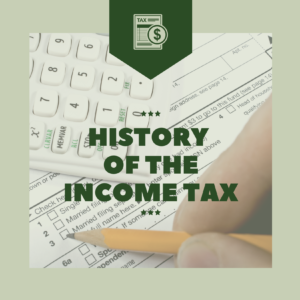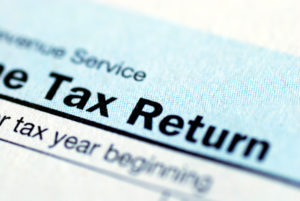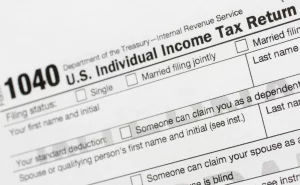
Avoid CTA-BOI Penalties of $591/day – Warning to Small Business Owners & Farmers
UPDATE – Small Business Owners Dodge a Bullet Millions of small business owners across America dodged a bullet on Tuesday (12/3) because a federal district

UPDATE – Small Business Owners Dodge a Bullet Millions of small business owners across America dodged a bullet on Tuesday (12/3) because a federal district

As we approach the beginning of a new year, I thought you might enjoy a break from all the numbers (such as percentages, thresholds, tax

The 2021 tax filing season officially ended on Monday 10/17, which was the filing deadline for extended personal income tax returns (Form 1040). As mentioned

In Part 1, I asserted that I witnessed regulatory overreach and abuse by the IRS during my 40-year career. I also presented my 6-point quick

Why am I not surprised to discover that the IRS destroyed 30 million unprocessed 2020 tax returns without authority? This was first brought to my

As we celebrate the 246th birthday of our great country tomorrow, I thought I would explain current tax theory, the historical part that taxes played

Happy 245th birthday to the United States of America. The last sentence of the Declaration of Independence reads: “And for the support of this Declaration, with
Tax season is over. Hopefully, you got your 2020 tax return filed by May 17, or filed an extension (which was the topic of my
The 2021 personal income tax filing deadline was postponed one month from April 15 to May 17. Since the tax deadline is only eight days away,

Recently, I heard on the radio that the $1,900,000,000,000 ($1.9 trillion) spending bill had just passed the Senate. It was cleverly called a COVID relief

I trust you and your sweetheart will be able to enjoy some quality time together and appreciate each other for Valentine’s Day this month. On

Last month, I began to explore the IRS audit process. I warned you 1) not to ignore a letter sent by the IRS, 2) to

By the time you read this article there will be less than two weeks left before 2021 arrives. Since I gave you yearend tax reduction

Today, I will address the huge return on investment available from the little-known college planning industry and also review the familiar tax breaks that help

I am taking this article in a different direction. Instead of communicating facts and opinions about the tax code or personal finances, I have chosen

I thought it might be time to explain some of the basics of taxes. Taxes fund expenditures of government. Synonyms for “tax” include: duty, tariff,

Last Saturday, the 244th birthday of this great country, I reflected on our history as a nation. In 1802 Senator Daniel Webster said: “Miracles to

The continuing COVID-19 pandemic and the recent riots and civil unrest got me thinking about disaster preparedness. This has been a topic of interest for

On Monday, May 4, our community and country took a step toward normalcy and I got a haircut that was long overdue. Many people left

COVID-19 has been the focus of the news every day for a month now. It is truly horrible that this new strain of virus is

“You can’t understand someone until you’ve walked a mile in their shoes.” There are many versions of this popular saying (an old song even comes

I trust you enjoyed the holidays and were able spend time with loved ones. I am happy to share that my wife and I became

A new decade begins a few days. Where did 2019 go? The older I get the faster time goes. I can still remember moving back

Appeared in the Columbia Daily Tribune on 7/6/19 The Tax Cuts and Jobs Act changed the tax preparation needs of many people. It made some

This article was originally published in the Columbia Daily Tribune. I would estimate that less than one percent of the people in Mid-Missouri have ever

Appeared in the Columbia Daily Tribune on 3/16/19 In this article, we will look at IRS audits and how to become “audit-proof.” The most important

Appeared in the Columbia Daily Tribune on 2/16/19 The new tax law (TCJA) altered the IRS Code than any change since the Reagan tax overhaul

Today’s topic is A Short History of the Internal Revenue Service. The original Constitution prohibited the direct taxation of its citizens. Article 1, Section 9 is

Posted Jan 18, 2019 at 2:28 PM on the Columbia Daily Tribute website Let’s review the new tax law (TCJA, Tax Cuts and Jobs Act) since the deadline (Monday, April

Posted on Columbia Daily Tribune Website on Jan 4, 2019 at 3:13 PM Today’s topic is The History of Income taxes. I think the Founding Fathers were brilliant men.

Posted Nov 21, 2018 at 1:19 PM Updated Nov 21, 2018 at 1:26 PM on Columbia Daily Tribune The third and final chapter covering the Home Office Deduction will handle allowable deductions, computation of the

Posted Nov 9, 2018 at 3:10 PM Updated Nov 9, 2018 at 3:10 PM on Columbia Daily Tribune In my last article, I introduced you to the Home Office Deduction and recommended it to most

Posted Aug 17, 2018 at 3:07 PM on Columbia Daily Tribune Last month, I handled highlights of the New Tax Law focusing on the impact on personal tax returns. This